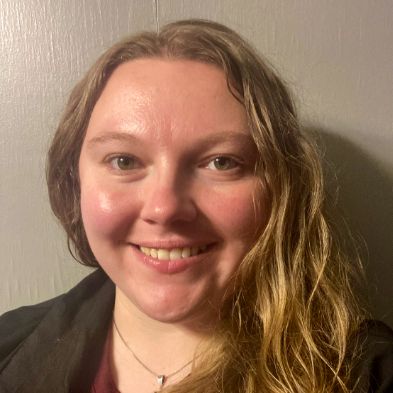A Step-by-Step Guide to Grief Therapy in Chicago
Starting grief therapy in Chicago often begins by recognizing signs like persistent sadness, sleep changes, or difficulty functioning, and deciding it’s time for support. Use MiResource’s directory to filter local, licensed therapists by specialty, insurance, sliding-scale options, languages, and in‑person or virtual availability across neighborhoods like the Loop, River North, Lincoln Park, Lakeview, Wicker Park, and Hyde Park. After shortlisting, schedule an initial consultation to discuss your goals, ask about approaches (CBT, ACT, or grief‑focused therapy), fees, and scheduling. Attend the first session prepared to share your story at your own pace while the therapist conducts an assessment and outlines next steps. If it feels like a good fit, you’ll collaborate on a treatment plan with session frequency, coping skills, and resources between visits.
Chicago offers both in‑person sessions—often near CTA lines—and secure telehealth for convenience during harsh weather or busy weeks. For office visits, consider Red/Brown/Purple Line stops for North Side locations, the Blue Line for West Town and Logan Square, or Metra Electric for Hyde Park; major bus routes like the 22 Clark, 8 Halsted, and 151 Sheridan also help. Parking is easier at community clinics in neighborhoods like Beverly or Edison Park, while garages or metered street parking are common in the Loop and River North—arrive a few minutes early to navigate pay boxes. MiResource can surface therapists with flexible hours, weekend availability, or trauma‑informed care, and lets you compare profiles and request appointments directly. Following through with the plan—practicing skills, monitoring progress, and adjusting goals—helps grief feel more manageable over time.
Guide to Accessing Local Organizations for Grief Support in Chicago
Local organizations in Chicago provide compassionate, community-based support that can make navigating Grief more manageable. They offer support groups, counseling, and culturally responsive services close to home, reducing barriers like cost, transportation, and wait times. Chicago-based nonprofits and centers—such as The Center for Grief Recovery and Therapeutic Services, Gilda’s Club Chicago, Ascension Illinois – Rainbow Hospice and Palliative Care, AFSP Illinois for suicide loss support, and Catholic Charities of the Archdiocese of Chicago —provide options for different needs and communities. Many also offer virtual programs, so you can choose the setting that feels safest and most accessible.
- Identify options: Use 211 Metro Chicago to find local Grief resources and review organizations like The Center for Grief Recovery, Gilda’s Club Chicago, and Rainbow Hospice.
- Check fit and access: Confirm services (individual counseling, groups, crisis support), hours, insurance/fees, and language access on their sites; see AFSP Illinois for suicide loss-specific groups and Catholic Charities for counseling and parish-based support.
- Make contact: Call or use online referral forms to ask about availability and next steps; request accommodations (virtual sessions, sliding-scale fees) and ask about waitlists or walk-in options.
- Engage and follow up: Attend an intake or orientation, try a first session or group, and evaluate comfort and cultural fit; if needed, ask for alternative groups or referrals within Chicago’s network.
Guide to Using Emergency Services for Grief in Chicago
If Grief in Chicago becomes overwhelming—such as feeling unable to stay safe, having thoughts of self-harm, or being unable to care for yourself—it’s time to use emergency services. Seek immediate help if you have a plan to harm yourself or others, feel out of control, or experience intense distress that doesn’t ease. If you’re unsure, err on the side of safety and contact a crisis service right away.
1) Identify a crisis
- Immediate danger or self-harm thoughts, a specific plan, inability to function, or severe agitation are crisis signs.
- If someone has access to lethal means, treat it as an emergency now.
2) Contact urgent help
- Call or text 988 (Suicide & Crisis Lifeline) or chat at for 24/7 support; in Chicago, you can ask for a Mobile Crisis Response Team.
- If there is immediate danger, call 911 and state it’s a mental health crisis; request Crisis Intervention Team (CIT) officers.
- NAMI Chicago Helpline (support and connection to care): 833-626-4244, 3) Go to an emergency room if needed
- Northwestern Memorial Hospital Emergency Department
- Rush University Medical Center Emergency Department
- UChicago Medicine Emergency Department
4) What to expect
- Crisis responders will assess safety, help reduce immediate distress, and connect you with follow-up care; you may be asked about thoughts, plans, substances, and supports.
- Bring ID and medications if going to the ER; you can request a support person and to discuss safety planning and next steps.
Guide to Using Parks and Green Spaces in Chicago to Support Mental Health
Time in nature can calm the nervous system, lift mood, improve sleep, and reduce stress—benefits that can be especially supportive when managing Grief. Gentle movement outdoors and exposure to natural light can ease feelings of isolation and help regulate emotions. Chicago’s parks, trails, and lakeshore offer restorative spaces to reflect, connect, and heal at your own pace.
Step 1: Find your space
- Explore nearby options like Lincoln Park, Jackson Park, Humboldt Park, Millennium Park, the Lakefront Trail, The 606 (Bloomingdale Trail), the Chicago Riverwalk, Montrose Beach Dunes, North Park Village Nature Center, and Garfield Park Conservatory.
- Use the Chicago Park District map or the Forest Preserves of Cook County to discover quiet spots and accessible paths.
Step 2: Prepare with care
- Check the weather, wear comfortable shoes, and bring water, layers, and sun protection; consider a small journal or calming playlist.
- Plan your route and transit (CTA or parking), and set a simple intention such as “I will breathe and notice what I see and hear” to support Grief.
Step 3: Be present during your visit
- Start with a slow walk, pause for 3–5 mindful breaths, and engage your senses—watch waves along Lake Michigan, listen for birds at Montrose Point, or notice greenery in Humboldt Park.
- Sit on a bench or by the lagoon, stretch gently, and allow emotions to rise and fall without judgment; leave if you feel overwhelmed.
Step 4: Make it a routine and connect
- Schedule short, regular visits (sunrise on the Lakefront Trail or a weekly stroll on The 606).
- Join free Chicago Park District programs, volunteer days with Friends of the Parks or the Forest Preserves of Cook County, or low-intensity walking/yoga groups to build supportive community while navigating Grief.
Your Guide to Understanding Grief
Grief is a natural response to loss, whether it’s the death of a loved one, the end of a relationship, a major life change, or the loss of health or security. It can show up as sadness, numbness, anger, guilt, fatigue, or even physical symptoms like headaches and trouble sleeping. Grief doesn’t follow a strict timeline, and it can come in waves—feeling okay one moment and overwhelmed the next. People may also experience “anticipatory grief,” which is the pain that comes before a loss, or “complicated grief,” when intense mourning lingers and makes daily life very hard. Whatever form it takes, your experience is valid and personal.
Understanding Grief helps you recognize what you’re feeling and why, which can reduce shame and isolation. It encourages healthy coping, such as talking with supportive people, creating rituals of remembrance, and seeking help if you feel stuck. Knowing the signs of when grief needs extra support—like persistent hopelessness, withdrawal, or thoughts of self-harm—can protect your mental health and well-being. With time, care, and support, many people find ways to carry their loss while also reconnecting with meaning, connection, and hope. Reaching out for help is a strength, and you don’t have to navigate Grief alone.
What Grief Is and How It’s Defined
Grief is the natural emotional, physical, and social response to losing someone or something important, and it can include sadness, anger, numbness, and even relief. The American Psychological Association describes grief as a multifaceted reaction to loss, while the World Health Organization notes it can affect sleep, appetite, concentration, and daily life—often changing over time. Grief is not a linear process, and there’s no “right” timeline or way to feel; it comes in waves and looks different for everyone. With support and time, many people find ways to adapt and carry their loss with care.
Who Grief Can Affect
Grief can affect people of all ages, genders, and backgrounds, and there’s no “right” way or time to experience it. While those facing sudden losses, caregivers, healthcare and frontline workers, or people with fewer supports may feel Grief more intensely at times, everyone is included and deserving of care. It can show up after a loved one or pet dies, a relationship ends, a job changes, or a big move happens. Whatever your story, your feelings are valid and you’re not alone.
Why It’s Important to Learn About Grief
Grief can show up in many everyday ways, and recognizing these signs early can help you care for yourself sooner. This section covers common signs of Grief so you can spot concerns early and reach out for support if they persist or feel overwhelming.
- Frequent waves of sadness or unexpected tearfulness
- Noticeable changes in sleep or appetite
- Trouble concentrating, forgetfulness, or feeling “spaced out”
- Pulling back from social plans or daily routines
- Irritability, restlessness, or a short fuse
- Physical heaviness, tightness in the chest, headaches, or stomach upset
- Feeling numb or detached, or questioning meaning and purpose
What People Want to Know about Grief
- How do I know if I’m ready to start therapy for Grief?
You may be ready to start therapy for Grief if it’s affecting your sleep, work, relationships, or ability to enjoy daily life. Feeling stuck, overwhelmed, or noticing repeated cycles of Grief can be a sign you’re looking for new tools and support. If you feel even a small motivation to make changes or a curiosity about how therapy could help, that’s enough to begin. You don’t have to have everything figured out—taking the first step toward professional support is a strong, hopeful choice.
- What should I look for when choosing a therapist who treats Grief in Chicago?
Look for a therapist in Chicago with clear experience helping people through Grief and loss, including specific training and years of practice. Ask about their therapeutic approach (e.g., grief counseling, CBT, ACT, or trauma‑informed care) and make sure it aligns with how you like to work. Check credentials and licensure (LCSW, LCPC, LMFT, Psychologist) and confirm they offer options that fit your life, like evening hours or telehealth in Chicago. Most importantly, choose someone you feel comfortable with—feeling heard, respected, and safe is key to effective Grief therapy.
- What are evidence-based therapies to treat this Grief?
Evidence-based options for Grief include Prolonged Grief Disorder Therapy (also called Complicated Grief Therapy), which gently helps you process the loss, revisit memories safely, and rebuild daily routines and connections. Cognitive Behavioral Therapy (CBT) teaches skills to spot unhelpful thoughts about Grief, practice coping strategies, and re-engage in meaningful activities. Acceptance and Commitment Therapy (ACT) helps you make room for painful feelings, focus on what matters most, and take small steps toward a life that honors your loss. These approaches are structured, time-limited, and have strong research support for easing the intensity of Grief.
- How long does therapy for Grief usually take?
Therapy for Grief varies by the severity of your loss, the type of treatment (individual, group, or specialized grief therapy), your goals, and your individual progress. Many people see meaningful change over several weeks to a few months, while others continue longer; timelines are estimates, not guarantees. Consistency and commitment between sessions are key to healing from Grief. In Chicago, you can choose short-term, structured options or longer-term Grief support depending on your needs.
- Can I combine therapy for Grief with medication?
Many people coping with Grief find that a combination of therapy and medication provides meaningful relief and supports healing over time. The best approach varies by person, so decisions should be made with a qualified professional who can assess your needs and monitor progress. In Chicago, coordination between therapists and prescribers can help ensure your care is aligned, safe, and responsive to changes. If you’re considering combined treatment for Grief in Chicago, reaching out to a licensed provider is a supportive first step.
- How much does Grief therapy typically cost, and will insurance cover it?
Grief therapy costs vary based on location (including Chicago), provider type and credentials, session length (often 45–60 minutes), and whether it’s individual or group therapy. Many insurance plans cover mental health care, but coverage depends on in-network status, deductibles, copays, session limits, and telehealth benefits; call the number on your card to confirm benefits and ask about out-of-network reimbursement. If cost is a concern, look for sliding-scale providers, community mental health clinics, university training clinics, or nonprofit grief support resources in Chicago. To check coverage efficiently, ask your insurer and provider about in-network status, required authorizations, and whether they can provide a superbill for reimbursement.
- What can I do between therapy sessions to help manage my Grief?
Between sessions, create a gentle routine that includes daily movement, nourishing meals, and consistent sleep to steady your body while you navigate Grief. Try brief practices like journaling, writing a letter to the person you lost, or a simple breathing exercise (inhale 4, exhale 6) when waves of emotion rise. Stay connected by scheduling check-ins with a trusted friend, and consider a Grief support group or community event in Chicago to feel less alone. Set one small, doable task each day and plan a soothing ritual—like a walk by the lake or lighting a candle—to honor your loss and support ongoing progress.













